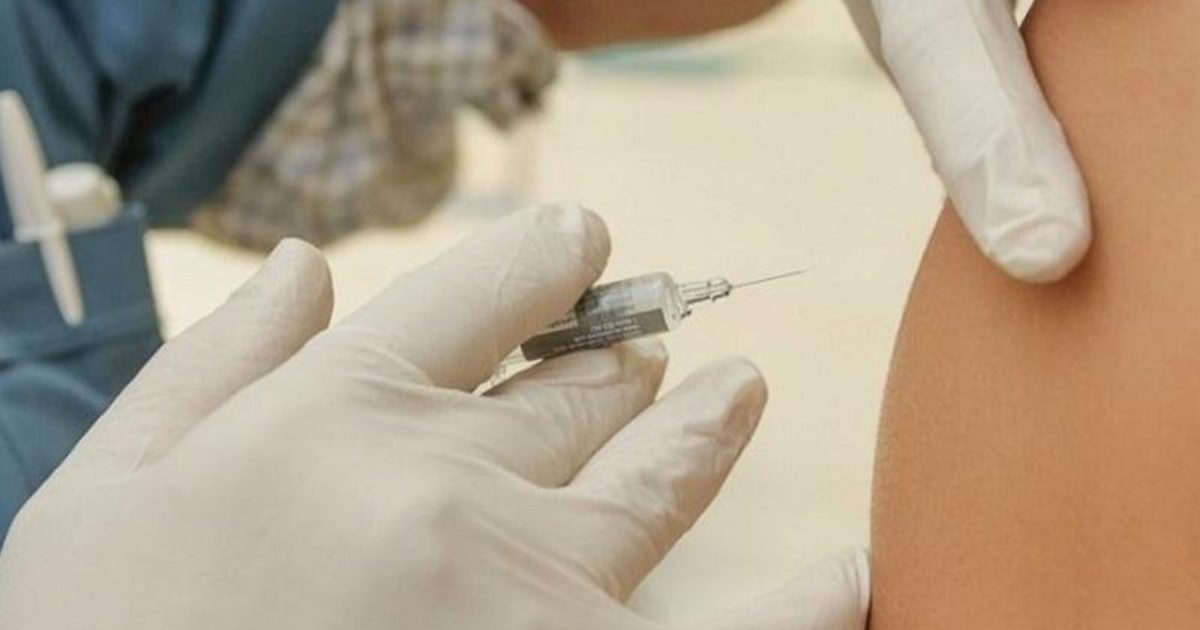Nine health experts from major universities said in a new pre-print study that the experimental COVID-19 injections are up to 98 times worse than the virus.
They also stated mandatory boosters for colleges are “ethically unjustifiable.”
The study was posted on The Social Science Research Network (SSRN) in September, titled, “COVID-19 Vaccine Boosters for Young Adults: A Risk-Benefit Assessment and Five Ethical Arguments against Mandates at Universities.”
Scientists from the University of Washington, University of Oxford, University of Toronto, Harvard University – Harvard Medical School, University of California, San Francisco (UCSF), Johns Hopkins University – Department of Surgery, and others conducted the study.
“Using CDC and sponsor-reported adverse event data, we find that booster mandates may cause a net expected harm,” the study found.
The researchers also concluded that “per COVID-19 hospitalisation prevented in previously uninfected young adults, we anticipate 18 to 98 serious adverse events, including 1.7 to 3.0 booster-associated myocarditis cases in males.”
They deemed university booster mandates unethical for the following reasons:
- no formal risk-benefit assessment exists for this age group;
- vaccine mandates may result in a net expected harm to individual young people;
- mandates are not proportionate: expected harms are not outweighed by public health benefits given the modest and transient effectiveness of vaccines against transmission;
- US mandates violate the reciprocity principle because rare serious vaccine-related harms will not be reliably compensated due to gaps in current vaccine injury schemes; and
- mandates create wider social harms. We consider counter-arguments such as a desire for socialization and safety and show that such arguments lack scientific and/or ethical support.
The study’s conclusion reads:
Based on public data provided by the CDC, we estimate that approximately 22,000 to 30,000 previous uninfected young adults ages 18–29 years must be boosted with an mRNA vaccine to prevent one Covid-19 hospitalisation. Given the fact that this estimate does not take into account the protection conferred by prior infection nor a risk-adjustment for comorbidity status this should be considered a conservative and optimistic assessment of benefit.
Our estimate shows that university Covid-19 vaccine mandates are likely to cause net expected harms to young healthy adults—between 18 and 98 serious adverse events requiring hospitalisation and 1373 to 3234 disruptions of daily activities—that is not outweighed by a proportionate public health benefit.
Serious Covid-19 vaccine-associated harms are not adequately compensated for by current US vaccine injury systems. As such, these severe infringements of individual liberty are ethically unjustifiable.
Worse still, mandates are associated with wider social harms. The fact that such policies were implemented despite controversy among experts and without updating the sole publicly available risk-benefit analysis to the current Omicron variants suggests a profound lack of transparency in scientific and regulatory policy making.
These findings have implications for mandates in other settings such as schools, corporations, healthcare systems and the military. Policymakers should repeal booster mandates for young adults immediately, ensure pathways to compensation to those who have suffered negative consequences from these policies, provide open access to participant-level clinical trial data to allow risk- and age-stratified harm-benefit analyses of any new vaccines prior to issuing recommendations125, and begin what will be a long process of rebuilding trust in public health.
Read the full study HERE.



Join the conversation!
Please share your thoughts about this article below. We value your opinions, and would love to see you add to the discussion!